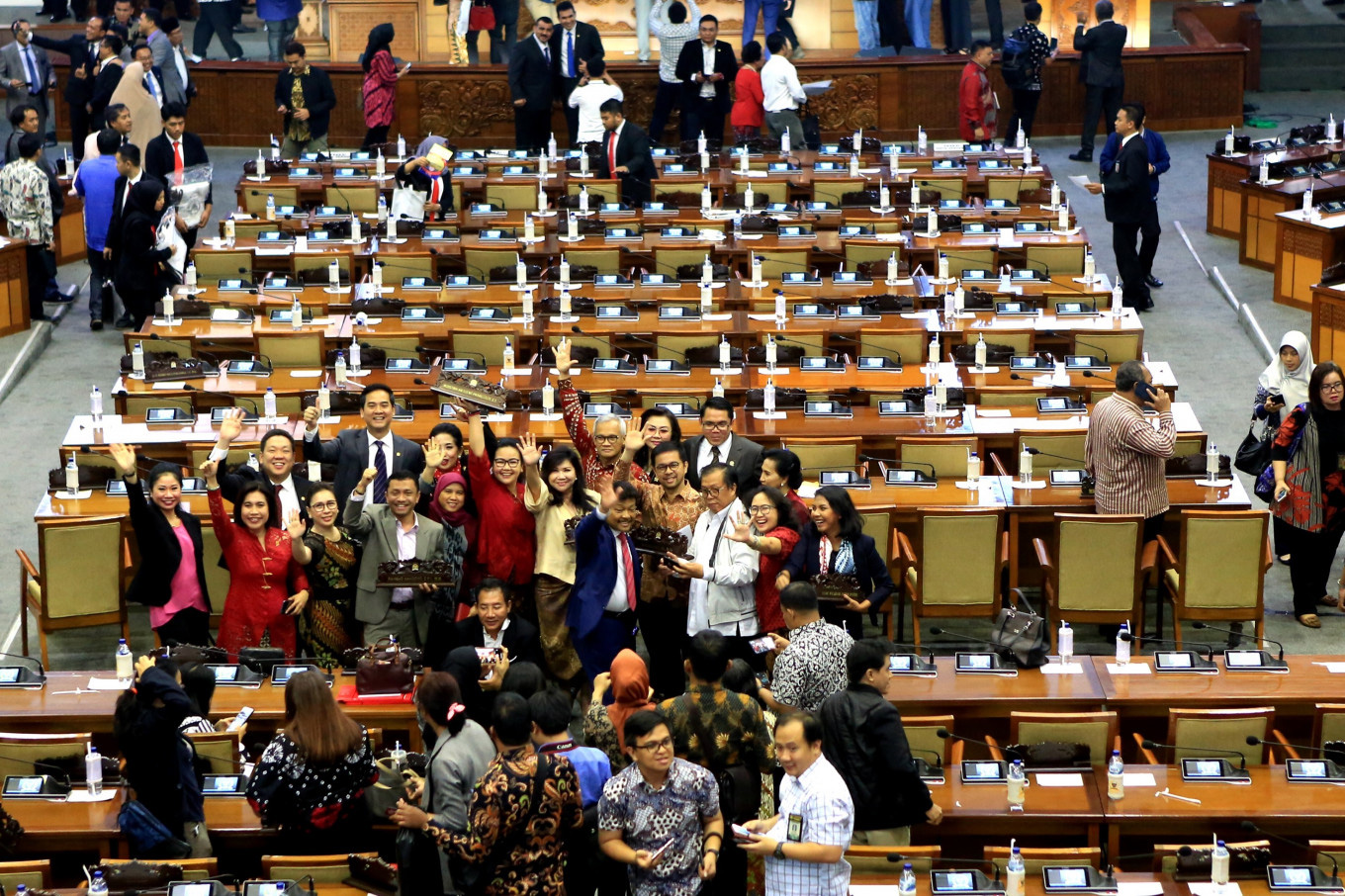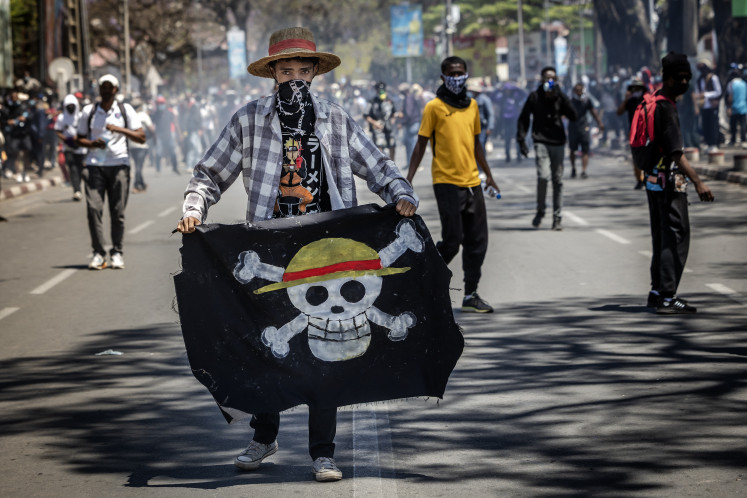Popular Reads
Top Results
Can't find what you're looking for?
View all search resultsPopular Reads
Top Results
Can't find what you're looking for?
View all search resultsInsight: The danger of lame ducks rushing all those laws
Considering many Indonesians consider the key performance indicator of the House is how many laws it passes, the quality of those laws too often ends up as a secondary consideration.
Change text size
Gift Premium Articles
to Anyone
I
n recent weeks, much public attention, indeed consternation, has been focused on efforts by the House of Representatives to pass a wide range of laws. A number of these draft laws propose to expand profoundly the power of the state to penetrate the private domain of the citizenry. Startlingly, this includes proposals to criminalize matters of the heart between consenting adults. These developments constitute a bizarre effort to contort reactionary interpretations of sacred text into the Criminal Code of a modern nation state.
Laws already passed redefine the relationship between agencies of the government and independent agencies of the state, most notably the law on the Corruption Eradication Commission (KPK). Other drafts seek to redefine economic rights governing natural resources, including land and water, and also in the relationship between labor and capital.
Beyond the controversies of each specific draft law is a much less considered question of a legislature at this point in its life cycle presuming to pass so many laws. Elections for the new House of Representatives were conducted in April this year. Approximately half the lawmakers were either retired or defeated. In essence, this is a lame duck parliament. These lawmakers now enjoy total liberation from political accountability — certainly from the citizenry.
Regarding this flurry of effort to pass complex and controversial laws, an obvious question arises as to why these laws were not passed before the elections. After all, most had been on the drafting tables for several years. Were lawmakers concerned that the passage of these controversial laws before the elections would have been a vote loser for them? The extent of the current reaction by citizens suggests lawmakers were clearly wise to avoid passing those laws then.
However, passing those laws before the elections would have allowed House members to honorably uphold accountability for their legislative action, rather than trying to slip these laws through in this dishonorable fashion once they are safe from the voters’ ballot papers.
During this same postelection period, there has also been a sudden gushing demand to amend the Constitution to reinsert much of the old pre-2002 parliamentary system of government. Under that system, the president was appointed by the super-parliament, known as the People’s Consultative Assembly (MPR). Secondly, the duly appointed president was bound by a policy platform known as the State Policy Guidelines (GBHN) that were also endorsed unilaterally by the old MPR.
Before being inundated by haters arguing that the assembly was not a legislative body, allow me to deploy another poultry related allegory. If it looks like a duck, swims like a duck and quacks like a duck, then it probably is a duck. The MPR determined who would lead the government, could also dismiss unilaterally that head of government, could amend the Constitution and could even produce legal instruments.
What institutions undertake such activities? Answer: Parliaments in countries operating a parliamentary system of government, certainly not a presidential system. Be in no doubt that the system of government operating from 1945 to 1949 and even more so from 1959 to 2002 was a radical form of the parliamentary system.
This is not the first time that a lame duck House has passed controversial legislation. We would all recall the lame duck House in September 2014, changing the law to eliminate the direct election of governors.
The furor this created compelled the outgoing president to push through an emergency regulation to reinstate the direct elections for governors.
The existence of this accountability deficit during this lame duck period, especially considering the public consternation created when the outgoing legislature passes controversial laws, calls for careful consideration of possible means to redress this problem.
One issue relates to the length of this lame duck period. With legislative elections taking place in April, there are over five months before the new House is inaugurated in October. Does this period have to be so long?
On the other hand, given that successive Houses have demonstrated a capacity to quickly move seemingly stalled draft laws into passed legislation, shortening this lame duck period may not necessarily prevent the passage of legislation that the House does not pass before an election.
One other possible remedy is to restrict the House’s capacity to pass legislation during this postelection time. One obvious exemption to this restriction, which should remain in place, is the House’s capacity to endorse or reject emergency regulations (Perppu) submitted by the president. Other key functions such as oversight would continue as the business of government continues during this period.
A not unrelated dynamic in facing the opprobrium of the public at this point of the political cycle are lawmakers’ frivolous comments that dissatisfied citizens can take their grievances to the Constitutional Court. This reflects a dangerous view that the court plays the role of “legislator of last resort”. In essence, bad legislation from the House will be fixed by the Constitutional Court. This attitude constitutes an abrogation of responsibility to legislate effectively.
Considering many Indonesians consider the key performance indicator of the House is how many laws it passes, the quality of those laws too often ends up as a secondary consideration.
Surely, the quality of legislation should be a critical consideration. In this regard, laws that actually accord with the Constitution should be a minimal yardstick for assessing good House performance.










